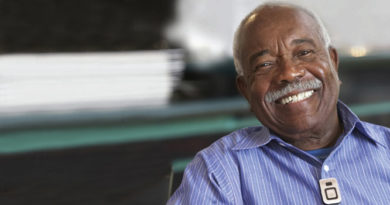Partners
The AKTIVE Project is led by CIRCLE at the University of Leeds, with partners The Oxford Institute of Population Ageing at the University of Oxford, Tunstall Healthcare (UK) Ltd and Inventya Ltd. The team brings together expertise in research on care, caring and carers; telecare manufacturing; and business intelligence. The project partners are assisted by expert consultants on technology and ergonomics, medical conditions policy and care; and appropriate user groups.
Overview of AKTIVE’s consortium
Participant Profile and expertise
CIRCLE (Centre for International Research on Care, Labour & Equalities), University of Leeds
Contact: Professor Sue Yeandle CIRCLE director
CIRCLE is based in the School of Sociology & Social Policy, University of Leeds. Formed in 2006 and complementing studies in the School’s other centres of research excellence (disability, race and ethnicity, families), CIRCLE focuses on: unpaid family carers and their support needs; the role of technology in creating a sustainable system of social care for older and disabled people and their families; and the relationship between paid work and family life. CIRCLE uses advanced and innovative methods and draws on the expertise of its team of sociologists, social statisticians, social psychologists and social policy specialists to deliver expert, multi- disciplinary social research. The team for the project comprises experienced, PhD qualified staff. In the 2008 HEFCE Research Assessment Exercise, social policy research at Leeds was ranked 2nd in the country for world-leading research (4* rating), in a field of almost 70 institutions.
Oxford Institute of Population Ageing, University of Oxford
Contact: Dr Kate Hamblin
The Oxford Institute of Population Ageing is the first research institute to examine societal ageing and demographic change, rather than the ageing of old people per se. Demographic ageing of societies represents one of the major challenges for the 21st century. As fertility has fallen, longevity has increased, with older people living longer and healthier old ages. The changing demography will have major implications for the way we work, family and intergenerational relationships, social networks, and political, economic and consumer behaviour, in addition to the delivery of medical, health and social services, and how state support should be provided. The OIA has extensive research experience on older people’s needs, resources and aspirations as well as their relationships with other generations through its ‘Demography and Society’ research programme directed by Dr Andreas Hoff, specifically within the ‘Intergenerational relationships, family care and communities’ research stream. The OIA will thus make a major contribution to the proposed research by helping to understand older people’s specific care needs, their capacity and barriers to the uptake of assistive living technologies and contextual factors influencing their capacity, their understanding of the benefits of such technologies, and how using assistive living technologies is likely to improve their quality of life, as well as change their relationships with members of their family and social networks, local communities and care professionals.
Tunstall Group plc.
Contact: Richard Farrell-Smith, (Product Manager, Tunstall Healthcare (UK) Ltd)
Established in the UK in 1957, Tunstall is the world’s leading provider of telecare and telehealth solutions for older people and those with long-term needs. The Company provides integrated Telecare systems for home, assisted living and specialist care environments, hospital communication systems, associated support services, response centre software systems along with the operation of response centres. The company has a user- base of over 2.1 million in Europe (2.5m globally), which is more than seven times the size of its closest competitor. The Company’s market territories represent 75% of global healthcare expenditure. Industrial collaborations include the current ALIP TSB project, VirtEx, the current EU- funded Soprano project and Continua Health Alliance.
Inventya
Contact : Valerie De Leonibus, Director
Headquartered in Daresbury in the North West, Inventya is a specialised business to business market research and commercialisation consultancy with a strong track record of working on the commercialisation of assistive living technologies that range from web portals to medication management systems and sensors. Inventya has a broad international client base varying from start-ups to SMEs and blue chip as well as universities and spin-out companies. Having delivered numerous ERDF and government- funded projects in the UK, Inventya has developed relationships with hundreds of organisations across the countries and extensive knowledge of the business landscape. As such, the company is well placed to understand the diverse challenges faced by this variety of industry players.
Leeds City Council Leeds City Council, Adult Social Care Telecare Service
Contact : Katie Cunningham, Service Manager
Since October 2006, Leeds Telecare service has provided second generation Telecare equipment to over 4700 people including those with memory problems, learning difficulties, head injuries, physical impairments etc. Currently, there are 2892 people using the service and around 300 people use the Mobile Response Service. The service has begun to use third generation Telecare equipment. In addition to this, there are around 4500 people living in their own homes using first generation Telecare equipment and around 6000 people living in sheltered housing settings using similar equipment. Thus, the total number of Telecare users in Leeds is over 14,000. The Leeds Telecare Service is one of the largest in the country, particularly with regard to the provision of second generation equipment.
Oxfordshire County Council Oxfordshire County Council (OCC)
Named contact(s): Alison Fishpool (Service Development & Policy Manager) and Natalia Lachkou (Supporting People Programme Manager)
Oxfordshire County Council started a telecare service in October 2006, which by March 2010 had developed into a service providing alarms and a wide range of sensors to over 1,800 clients, growing at a steady rate of over 700 clients a year. An emergency 24/7 response service was established in two of the five county districts for those clients who did not have family of friends to respond to their alarm, and was used by 20% of clients. Client groups focus mainly on older people living in their own homes, many of whom are at risk of falls or who have memory problems, though other client groups were also offered the service including younger adults with learning disabilities in supported living. Criteria for telecare were deliberately widely set to encourage its use as a preventative service, enabling clients to live in their own homes longer, avoiding hospital admissions and residential care. Evaluation of Oxfordshire Telecare has showed successful client outcomes and avoided costs of over £2 million. To fully mainstream the service in April 2010, Oxfordshire County Council brought together alarms provided through Supporting People for sheltered housing tenants and the telecare service, to provide comprehensive alarm provisions for all residents of the county, regardless of their chosen type of home. This increased the number of telecare clients (now called the Alert service) to 5,000 across the county.
Robens Institute Robens Institute
Contact: Professor Peter Buckle
Professor Buckle will lead this team, working closely with colleagues. Buckle has over 30 years research experience in which he has delivered award winning research embracing review papers and guidelines; original, applied research; and responsive, consultancy reports and services. Peter is the President elect and a Fellow of the Institute of Ergonomics and Human Factors and a Fellow of the Royal Society of Public Health. He was Chairman and Founder Member of the Musculoskeletal Scientific Committee of the International Commission on Occupational Health (1996- 2001). The Robens Institute aims to innovate within organisations and to optimise safety and well-being and health. It adopts a systems perspective and applies these to design problems. The Institute is a Registered Consultancy of the Institute of Ergonomics and Human Factors. Its research knowledge and experience will assist in assessing needs for the delivery of successful implementation of the assisted living interventions; and the cost-benefits and cost-effectiveness of interventions. The Institute has great experience in multi-disciplinary research, including qualitative and quantitative approaches. The Robens Institute has extensive experience of publishing academic peer review journal articles, briefing papers, short reports, systematic reviews and lay guidance. All of these form part of the dissemination strategy. However, the dissemination of knowledge will extend to include initiatives (e.g. interactive web based learning resources) that can lead to a self-sustaining community of active collaborators sharing experiences and best practice.
Helen Hamlyn Centre Helen Hamlyn Centre
Contact: Rama Gheerawo, Deputy Director
The Helen Hamlyn Centre (HHC) provides a focus for design research at the Royal College of Art (RCA) in London. Its multi-disciplinary team of designers, engineers, architects, anthropologists and communication experts undertake collaborative design research projects with other HEIs, industry, government and research consortia. The project will adopt design ethnography processes that have been developed at the HHC through its Research Associate Programme .
Oxford Falls Services Oxfordshire Falls Prevention Service
Contact: Dr. Adam Darowski
Dr. Darowski has run a falls service for the last 15 years, for the last 10 years in Oxford. He is also the author of a book, ‘Falls The Facts’, and has written book chapters on falls and two review articles on medication and falls.
Thames Valley Dementia and Neurodegenerative Diseases Thames Valley Dementias and Neurodegenerative Diseases
Contact: Dr. Rupert McShane
Dr. Rupert McShane is clinical lead for the Thames Valley Dementias and Neurodegenerative Diseases local research network. He is also the Coordinating Editor of the Cochrane Dementia and Cognitive Improvement Group.
Northumbria University Northumbria University: Applied Social Sciences
Contact: Professor Alan Roulstone
Alan Roulstone is currently Professor in Applied Social Sciences at Northumbria; he was previously Head of Social Sciences and Head of Research (sub-dean) in the Health and Life Sciences Faculty at De Montfort University, Leicester, UK. He has been involved in numerous research projects concerned with adult health and social care, disability, social exclusion, transitions to work and adulthood, disablist hate crimes, new technologies and social futures, older people, and disability law. Funders of his research include SCIE, the Joseph Rowntree Foundation, Department of Health, Disability Rights Commission (now EHRC), European Commission, Economic and Social Research Council, Regional Development Agencies, and UNESCO.
Skills for Care Skills for Care
Contact: Diane Buddery, Project Manager – Carers Strategy
Skills for Care is the employer-led, third-sector authority on the training standards and development needs of social care staff in England. They provide funding of more than £25 million to support training for care staff and managers.
Age UK Oxfordshire Age UK Oxfordshire
Contact: Paul Cann, Chief Executive
AGE UK Oxfordshire is the leading local age charity. Delivering a wide range of services from footcare to befriending, the charity has a long and successful track record of helping older people achieve independence and quality of life, with a particular emphasis on the most disadvantaged by reason of disability, disease, isolation or poverty. The charity prides itself on its closeness to the views an wishes of older people and has done trailblazing work to help people speak up for themselves, using forums, panels and campaigning.
Counsel & Care Leeds Counsel and Care
Contact: Elizabeth Lodge, Head of Services
Counsel and Care is a national charity working with older people, their families and carers. They provide in-depth specialist advice and information to older people and their carers. They also have an advocacy role, campaigning and research for better care. Founded in 1954, Counsel and Care has a long track record in securing better care for older people. They have been partners in a wide range of research influencing the provision of care in older people’s own homes and in residential care.


